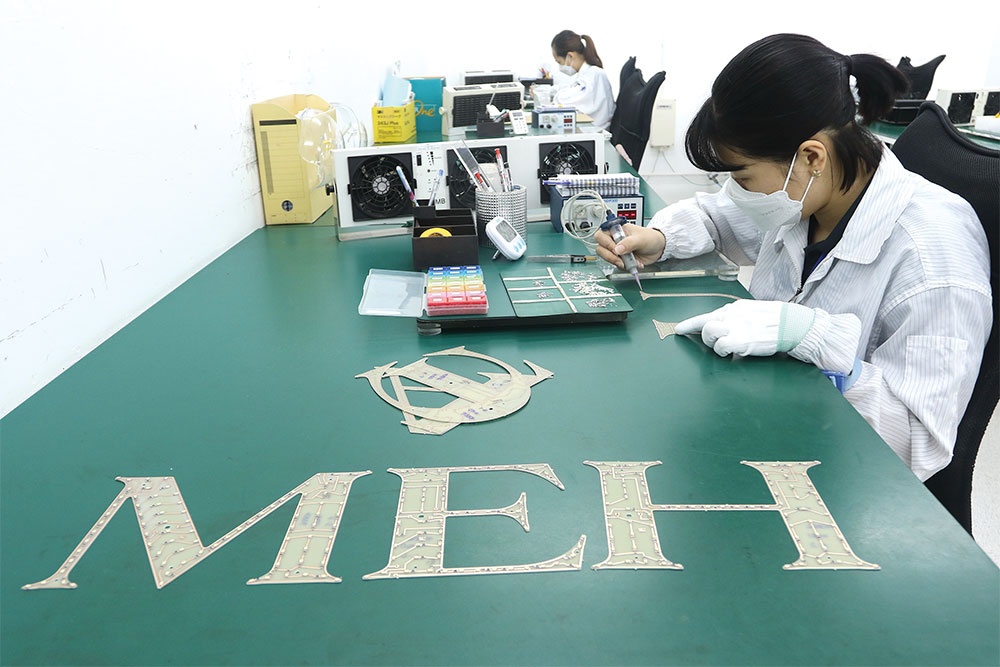Better ESG indicators set for FDI projects
The Ministry of Planning and Investment (MPI) last week submitted to the government the criteria for foreign direct investment (FDI), including 25 economic indicators, seven social, and four environmental ones.
 |
| ESG indicators are meant to improve the selection of foreign-invested projects and partners in the long run, Le Toan |
“We will build a complete post-checking tool for foreign-invested projects and inflows to fit with the selective investment attraction strategy, identify shortcomings, and contribute to sustainable socioeconomic development,” said Do Nhat Hoang, director general of the MPI’s Foreign Investment Agency (FIA).
The group of economic indicators will evaluate the scale and contributions to the country’s development, the efficiency of enterprise operations, their contributions to the state budget, and their use of technologies.
Meanwhile, the social indicators will assess the creation of jobs and incomes for labourers, and those related to gender equality. And foreign-invested enterprises’ (FIEs) efforts to save energy, ensure waste and wastewater treatment, and control greenhouse gas emissions will also be taken into account within the environmental indicators.
In the view of the FIA, there is no set of indicators to evaluate FDI performance now. “The current FDI reports mainly based on the results of attracting and using FDI, as well as the contribution of FIEs to the economy. There is no unified set of criteria for evaluating the FDI performance at all levels,” Hoang said.
“It is urgent to study and develop criteria for evaluating the FDI performance as Vietnam is shifting to the protection of quality, efficiency, and the environment in mobilising FDI. The indicators will be a tool to properly assess the position, role, and contribution of FIEs to the country’s socioeconomic development,” he said.
The FIA confirmed that FIEs are an important sector of Vietnam’s economy. FDI developed rapidly and successfully, making positive contributions to the country’s socioeconomic development. “The scale of capital and project quality increases, contributing to job creation and income for employees, enhancing skills and capacity, increasing state budget revenue, and stabilising the macroeconomy,” Hoang added.
However, the use of foreign investment in recent years has revealed some shortcomings, according to the FIA leader.
The links and spillover effects of productivity and technology to the domestic sector are still poor. Samsung and Intel are the two biggest electronic manufacturers and exporters with huge factories in Vietnam; however, the number of local enterprises that can join these supply chains is few, and their products are simple.
Some FIEs have not strictly complied with the provisions of Vietnamese law on environmental protection. For instance, Vedan poured untreated waste into the Thi Vai River, avoiding paying environmental fees for many years; Miwon discharged untreated wastewater into the Red River; and the discharge pipeline of Formosa Ha Tinh contained toxins, killing about 80 tonnes of seafood in four provinces.
Moreover, some FIEs have been dishonest in financial statements. About 50 per cent of FIEs were reported to face losses in the past year, of which many have suffered continuous losses for many consecutive years. Despite this, they expanded their business activities. Coca-Cola, PepsiCo, and Keangnam Vina were notable cases, in addition to others in real estate, construction, textiles, and manufacturing.
Pham Hung Tien, deputy director at Friedrich Naumann Foundation Vietnam, said that as FIEs report losses, they often use law firms specialising in financial consulting behind them to grasp legal loopholes. “To limit poorly-performing foreign-invested projects, localities should understand carefully the investor’s purpose, ability, history, and business management, before granting investment certificates,” Tien suggested.
Nguyen Van Toan, vice chairman of the Vietnam’s Association of Foreign-Invested Enterprises, said, “Previously, we had a surplus of labour, so we wooed FDI to create jobs and capital for economic development. Now, there is not a surplus of labour but the problems of environmental pollution and energy consumption are emerging, forcing us to strictly filter foreign-invested projects, both pre- and post-inspection.”
One year ago, the prime minister issued a decision on special investment incentives on investment projects, stipulating corporate income tax exemptions, as well as land and water rent reductions for foreign-invested projects. The legal policy focuses on increasing the localisation rate towards projects using high technology, using less labour but bringing high economic efficiency, and employing skilled workers. These provisions will affect selecting investors through the enhancement of effectiveness and efficiency of state management of FDI and tightening of procedures, investment licensing and project evaluation.
| Regional PE deals on up as ESG investing takes lead ESG investing and the threat of corporate greenwashing |
What the stars mean:
★ Poor ★ ★ Promising ★★★ Good ★★★★ Very good ★★★★★ Exceptional
Related Contents
Latest News
More News
- SK Innovation-led consortium wins $2.3 billion LNG project in Nghe An (February 25, 2026 | 07:56)
- THACO opens $70 million manufacturing complex in Danang (February 25, 2026 | 07:54)
- Phu Quoc International Airport expansion approved to meet rising demand (February 24, 2026 | 10:00)
- Bac Giang International Logistics Centre faces land clearance barrier (February 24, 2026 | 08:00)
- Bright prospects abound in European investment (February 19, 2026 | 20:27)
- Internal strengths attest to commitment to progress (February 19, 2026 | 20:13)
- Vietnam, New Zealand seek level-up in ties (February 19, 2026 | 18:06)
- Untapped potential in relations with Indonesia (February 19, 2026 | 17:56)
- German strengths match Vietnamese aspirations (February 19, 2026 | 17:40)
- Kim Long Motor and AOJ Suzhou enter strategic partnership (February 16, 2026 | 13:27)

 Tag:
Tag:


















 Mobile Version
Mobile Version